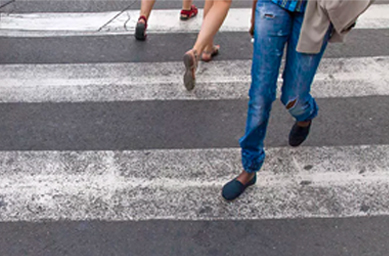If you are injured in a retail or grocery store, shopping mall, or any similar outlet, you may be able to hold the owner of the property liable for your injuries and other damages. In the state of Florida, property owners owe a duty of care to customers, guests, tenants, and anyone else who visits their properties. When they fail to uphold this duty of care, injured victims can take legal action and work to hold negligent property owners accountable.
However, recovering compensation after an accident on someone else’s property is not always a simple matter. Many people believe that, simply because they were injured while on the property, the landowner is liable—but this is not always the case. You will need to show that 1. the property owner owed you a duty of care; 2. the property owner failed to uphold that duty of care by failing to repair or address a dangerous condition that the property owner knew of or reasonably should have known of; 3. because of the dangerous condition, you were injured or suffered some degree of harm; and 4. as a result of the incident, you sustained damages.
Premises liability cases, as these are known, can be incredibly complex. At Todd Miner Law®️, we help victims of negligent landowners seek the fair financial recovery they are owed. Founding attorney, Todd Miner, and our entire team of seasoned trial lawyers are ready to put over 31 years of experience and a proven record of success on your side.
What Is a “Dangerous Condition” in a Retail or Grocery Store?
Simply put, a “dangerous condition” is one that presents some degree of foreseeable harm. In retail and grocery stores, there are many conditions that could be considered “dangerous.” Store owners and managers should be aware of these potential conditions and should be trained on how to properly address them.
Some common examples of dangerous conditions in retail and grocery stores include:
- Wet floors
- Spilled merchandise
- Cluttered walkways
- Overstocked shelves
- Precariously placed products
- Missing or insufficient signage
- Unmarked steps/stairs
- Uneven floors
- Poor lighting
- Negligent security
- Unmarked exits
- Improperly built shelves/racks
- Defective escalators/elevators
- Allowing too many occupants
The list goes on; any condition that someone could reasonably foresee causing an accident, injury, or harm could be classified as a “dangerous condition.”
What If I Was Hurt by Another Customer?
While property owners in Florida are required to create and maintain reasonably safe premises, they cannot be expected to control the actions of everyone who enters their property. Proving that a property owner is liable for injuries caused by another customer is not impossible—but it is incredibly difficult. Premises liability laws will only apply in certain circumstances.
If you are assaulted or otherwise injured by another person on the property, and the property owner failed to implement adequate security measures despite knowing that such an incident was likely to occur, you could have a negligent security case. However, you will most likely need to show that the incident was something the property owner could reasonably foresee happening.
For example, if you are assaulted while returning to your car in a large parking lot outside of a shopping mall in the evening, and the parking lot is not lit and there is no security guard on duty, you may be able to argue that the owner of the shopping mall was negligent in not providing adequate security in the parking lot. These are incredibly complex cases, however, and it is always in your best interests to work with an experienced attorney, like those at Todd Miner Law®️.
If you were hurt in a store, we encourage you to contact us right away for a free consultation with one of our skilled premises liability lawyers.








